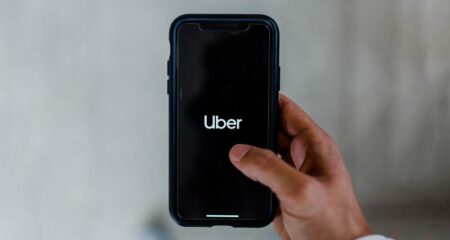
Mobile phone taxi service Uber has become the latest target to feel the heat in the fight for dominance over South Africa’s transport sector. The growing opposition by other taxi operators to the service is now pressuring government to consider the regulatory environemnt Uber is operating under.
The Gauteng Metered Taxi Operations argues that Uber is putting metered taxis out of business. The group’s spokesman, Lucas Seale, says a regular metered taxi trip from Rosebank to OR Tambo International airport costs just over R400 and claims Uber charges under R200.
Seale has also raised issue with the fact that Uber is not operating under the same permits required for minibus and metered taxi drivers.
He explains that Uber drivers operate on a chartered license in Johannesburg, which he says is more difficult to obtain than a metered taxi permit and falls under the public operating licence.
To obtain such a licence, one has to have several documents including a business certificate, route particulars and proof of insurance among others, Seale says.
This is a matter the City of Cape Town has been trying to correct since last year. According to the city’s JP Smith, more than 200 Uber vehicles have been impounded since January.
Smith has, however, confirmed reports that the government is looking at amending section 66 of the National Land Transport Act to make e-hailling taxis a subcategory of metered taxis. He says the matter will form part of discussions at a meeting of the provincial legislature this week.
Uber GM Alon Lits, on the other hand, has expressed his frustration with the system, saying that the company has been in talks with government for almost a year.
Lits adds that there has been inconsistent interpretation of the act, as they have been previously told to apply for chartered operating licences.

The difference between the two is that the chartered license applies to door-to-door services such as shuttles, while the public operating license governs the transportation of commuters on specific routes.
Lits says the legislation is outdated and that it was adopted long before advances in smart phone technology. He says that Uber is open to talks with various taxi operators and government to find a resolution.
According to Lits, Uber is registered with the Companies and Intellectual Property Commission. He explains that when consumers pay for the service, they enter into an agreement with the Netherlands-based company.
He further clarifies that drivers earn up to 80% commission of the fare that the company receives from a credit or debit card payment from the commuter.
Lits says most commuters feel safe with this system as it doesn’t require one to carry cash and that the vehicles are tracked.
The company announced earlier this year that it aims to create 15 000 jobs in the next two years. It has also claimed to have created over 2 000 jobs in South Africa thus far.
The app-based taxi service has faced similar regulatory challenges in France, America, Spain and the Netherlands.
However, there have been no negative reports of the Uber service in Egypt, Kenya and Nigeria.
- This article was first published on Moneyweb and is republished here with permission




